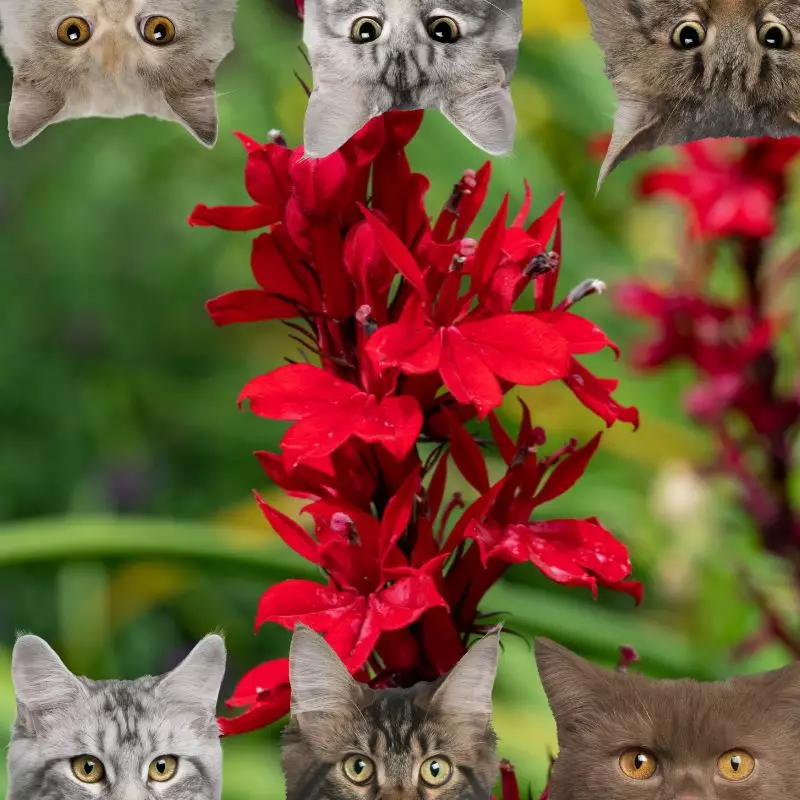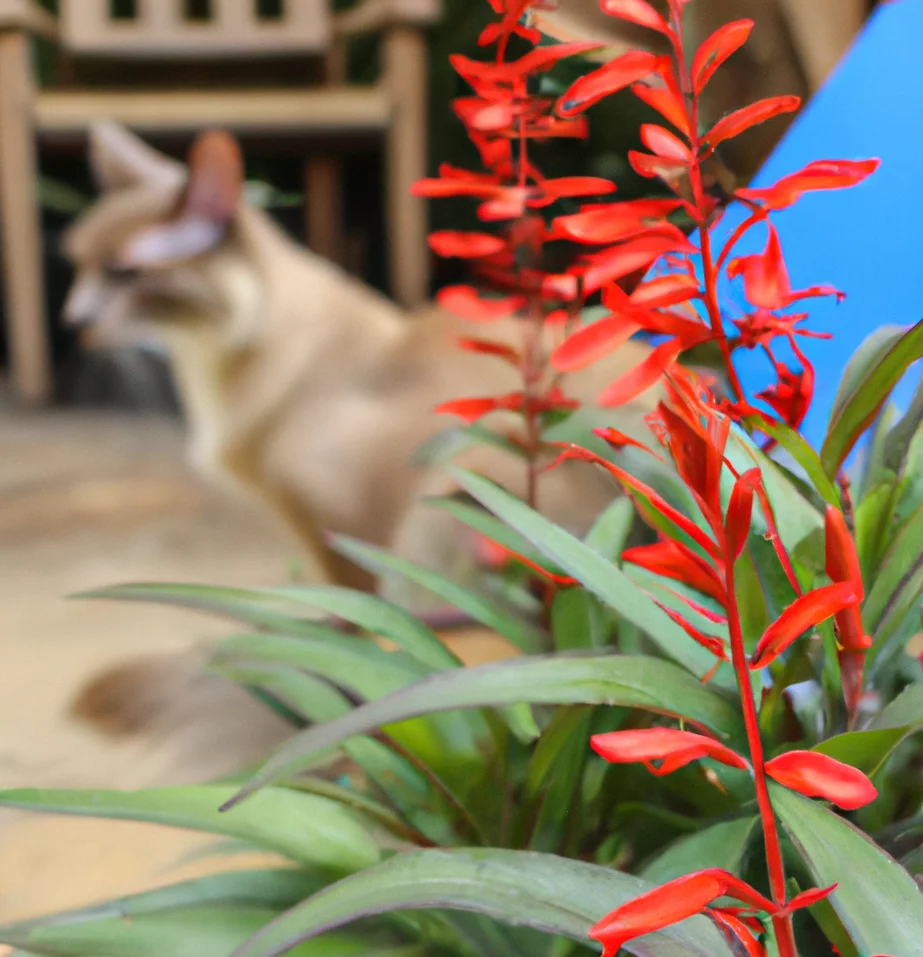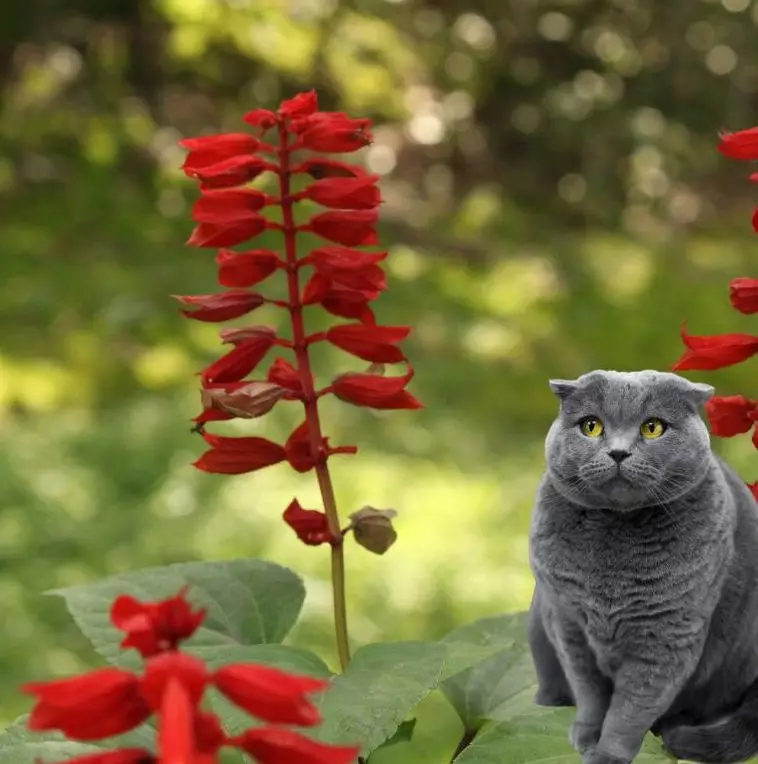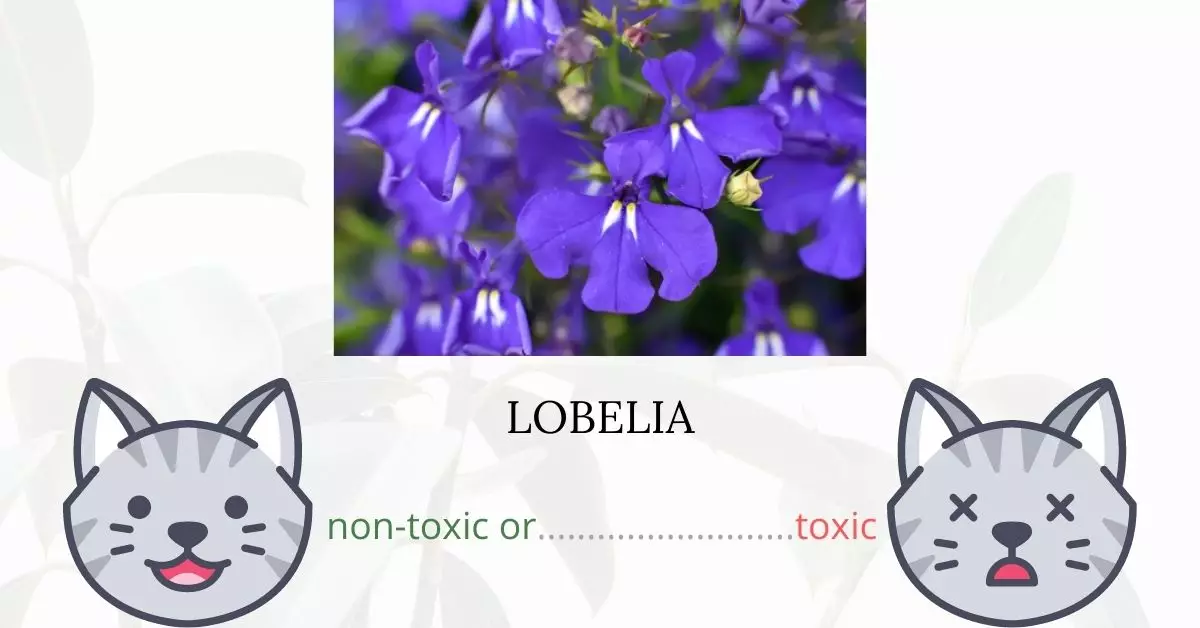Yes, Lobelia is toxic to cats. Lobeline, an alkaloid present in the lobelia plant, can depress various body processes in cats, including heart function, by inhibiting the activity of the sympathetic nervous system’s ‘preganglionic receptors’. This, combined with the plant’s irritating properties, can lead the cat’s body to vomit and expel the contents of its digestive tract. It is essential for cat owners to be aware of this potential risk.
This article was crafted in collaboration with a team of experienced DVMs (doctors of veterinary medicine). Their invaluable insights ensure that our readers receive accurate and up-to-date information on the potential risks associated with various plants, particularly Lobelia in this context. Additionally, to guarantee the authenticity and reliability of our content, we have consulted high-authority websites such as ASPCA and PetMD for comprehensive research on every plant discussed.
Clinical Signs of Lobelia Poisoning in Cats

When a cat comes into contact with, smells, or consumes the Lobelia plant, certain chemicals within the plant can negatively affect the cat’s physiology, leading to various clinical signs. Each symptom can be traced back to specific reactions or effects on the cat’s body:
- Vomiting: This is one of the most immediate reactions, caused by the body’s attempt to rid itself of the toxic lobeline. The irritating properties of Lobelia stimulate the stomach lining, prompting the cat to vomit and expel any ingested matter.
- Diarrhea: Similarly, diarrhea is a response of the intestines trying to purge any remnants of the toxic substance. It’s an indicator that the body is trying to detoxify itself quickly.
- Drooling Excessively: The lobelia plant contains chemicals that can irritate a cat’s oral mucous membranes. Upon tasting or chewing on the plant, a cat might drool profusely due to this irritation.
- Arrhythmia: Lobeline, the toxic alkaloid in Lobelia, interferes with the cat’s sympathetic nervous system. This can affect the heart’s rhythm, leading to arrhythmia, which is an irregular heartbeat that can be life-threatening if not addressed.
- Pain in the Abdomen: The ingestion of Lobelia can lead to gastrointestinal irritation. The cat may exhibit pain by showing discomfort, meowing more than usual, or being sensitive to touch in the abdominal area.
- Depression: This refers to lethargy and reduced energy levels. The overall effects of the toxic principles in the Lobelia plant can depress the cat’s neurological system, making them less active or responsive.
If you observe any of these signs in your cat after it has had contact with the Lobelia plant, it is imperative to seek veterinary assistance immediately. The sooner the toxins are addressed, the better the chances of a full recovery.
First Aid and Treatment of Lobelia Poisoning in Cats

Because there is no known antidote for lobeline poisoning, the veterinarian would most likely administer a series of basic detox operations. Fluid therapy, in which liquid is delivered intravenously to the cat, is the most common. This will assist the cat to avoid dehydration while also flushing the lobeline out of its system. It may also be required to give activated charcoal to absorb any lobeline that has not yet been digested by the cat. Other treatment procedures and medication may be also given to your cat as your veterinarian may deem necessary.
Recovery from Lobelia Poisoning in Cats

The vast majority of felines who suffer from lobelia poisoning will most likely recover quickly. Cat owners would be glad to know that most cats will regain their previous health within a few days. However, the veterinarian may decide to limit your cat’s activities for a period of time in order to save energy for the recuperation process.
Prevention of Lobelia Poisoning in Cats
Familiarize yourself with the toxic plants that can harm your feline companions. Stay away from growing lobelia or any toxic plants and search for other alternative plants to grow instead. To reduce your cat’s risk of exposure to toxic plants outdoors, keep him well-maintained and stimulated inside your home.
If you love plants but have cats at home, check out these lists:





